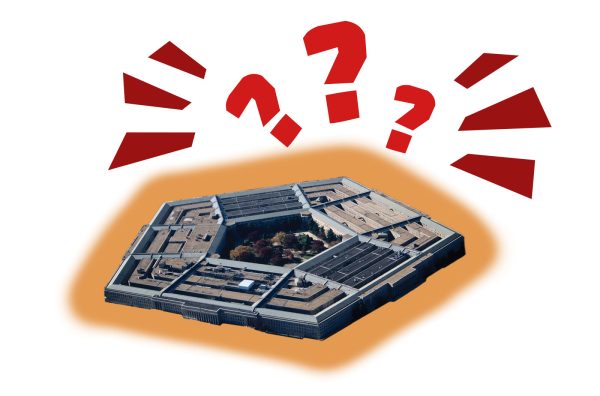The Catholic Church Does Not Care About Educating Women, But You Should
Rosati-Kain High School, an all-girls Catholic preparatory school, is located only five minutes away from SLU’s campus. Situated at the corner of Lindell and Newstead, it is across from the multi-million dollar new Cathedral, and just down the block from the Archbishop’s 11,000 square foot mansion, where he lives alone. Just a few weeks ago, Archbishop Mitchell T. Rozanski announced that the Archdiocese of St. Louis would be closing Rosati-Kain at the end of the year due to a lack of funds, which the Church might have had if they weren’t lobbying against abortion and gay marriage and lining their own pockets.
As the first high school in St. Louis to integrate in 1947, Rosati has always been commemorated for its history of diversity and inclusion. It boasts students from all religious, racial and economic backgrounds, many of whom receive financial assistance from the school. It is one of the few Catholic schools, and the only all-girls school, left within the city.
In addition to Rosati-Kain, the Archdiocese is also closing St. Mary’s, another historically diverse high school. Many speculate that the closing of schools has more to do with racism, classism and greed than funding and budgeting. Given the number of students on scholarships, the Archdiocese is unable to profit from Rosati and other low-income schools while the benefits of educating Black and low-income children do not seem to outweigh their avarice.
Of the schools they have chosen to remain open, most are located in white, upper-middle-class, suburban neighborhoods and serve populations who are more likely able to afford to pay the full price of tuition. If these schools had been the ones to close, their student body would likely have access to a well-funded public school district; something many Rosati students do not have access to.
When I attended Rosati only a few years ago, our differences were never barriers to forming a community and sisterhood. Unlike other private schools in the area, it never felt like an elitist institution, instead, it felt like home. I cherished the intimate school environment, as it allowed us all to become familiar and respectful towards each other. Our educators fostered the growth of those they taught, without ever undervaluing the strengths and talents already within us. It is rare to have teachers who go beyond what is required to serve their students with passion, integrity and compassion; it is even rarer to have a whole school filled with them.
Rosati-Kain is an institution where girls are raised to be future activists, leaders and reformers. They will go on to change the world, and in many ways, already are. Just recently, the girls rallied at the Cathedral to support their teachers in their efforts to achieve better teacher union rights. Soon after the news of the closure was released, they organized a protest to ask the Archbishop to save Rosati-Kain, which I attended.
Dressed in school uniforms and other Rosati-Kain apparel, the girls rallied with signs while shouting school chants. Dozens of supporters honked as they drove past. The demonstration was scheduled around the time Rozanski would be attending a meeting (unrelated to closures) inside of our gym; he would have walked from the Cathedral to the gym where the girls planned to wait for him at the front entrance. He chose to enter through the side instead.
He dared to close their home, but not to face them afterward.
At Rosati, service to one another and our community was of utmost importance. We were taught to strive for change, never waver on our morals, choose what is right over what is allowed, build from the toil of those before us and practice the art of respectful protesting. A tenet of Rosati, just like SLU, has always been a positive change and social justice. With our aligned values, our institution must concern itself with the ones that serve younger generations.
What the Archbishop has done in closing the school is not reflective of such values and service, and we must not ignore it. Without Rosati, our community will suffer. Not only does it prepare its students for college, but it also endows many with the opportunity to attend. It is a safe community for marginalized identities to gather and thrive while fostering their growth. Our city should have the type of person this school creates. It has formed the lives of many, and it should for years to come.
Right now, the future of Rosati-Kain is not decided. A meeting was held to discuss options for keeping the school open. The turnout was impressive; around 200 parents, teachers, alumnae and myself attended, which is more than the number of current students. Some, like myself, had graduated only recently, while others attended decades ago.
A woman sitting behind me at the meeting belonged to the class of 1965. She was never taught by any of the current administration or faculty, nor did she have any connection to the current students. Yet, she was still impacted by her time there, so much so that she would protest with her heart and soul to keep the school open. Like many other graduates, she still believes in the mission of Rosati-Kain, even to this day.
Rosati will need the support of the St. Louis community if it hopes to stay open. Like the protesting, world-changing women Rosati asks us to be, they will not go without a fight for justice. On my last day of high school, a former teacher of mine offered up some departing wisdom; she hoped that if there was only one thing we took from our time at Rosati, it was that the world is a big place, with big problems; and we cannot solve them all. But if there is one place to start, it is in our neighborhoods. Rosati-Kain is my neighborhood, and it must be a part of SLU’s.
Your donation will support the student journalists of Saint Louis University. Your contribution will help us cover our annual website hosting costs.











Mary Lou • Oct 27, 2022 at 12:48 pm
God bless you in your fight for real Christianity. Shame on the Archdiocese!
Boyd Kleen • Oct 25, 2022 at 6:26 pm
This has nothing to do with a lack of funds. This Archdiocese had a Profit of $174 million dollars last year after paying for all it’s programs and lobbying. We’ve also discovered recently that the Archdiocese gave St. Mary’s $2 million last year, but RK only got $100,000. These schools had pretty similar numbers of students, so why the disparity in funding? I wonder what the difference between the 2 might be?
Steven Duncan • Oct 25, 2022 at 11:29 am
Why is te Bishop living in manaon? The pope lives an apartment. If the St Louis catholics are paying foe upkeep on the Bishops housing, way not take that money and keep the schools open. Good question,think about it?
Steven d
Joplin, Mo